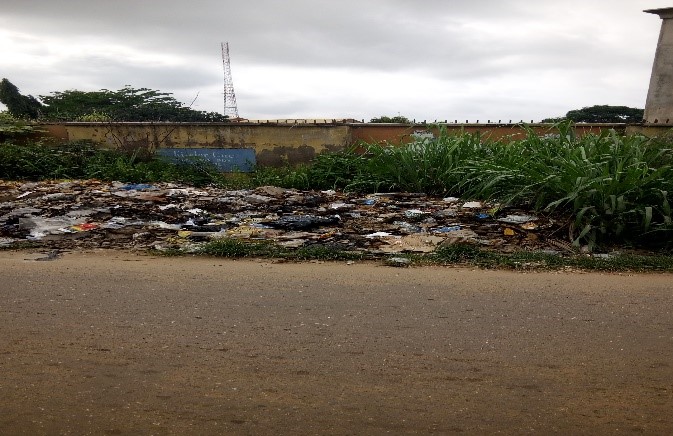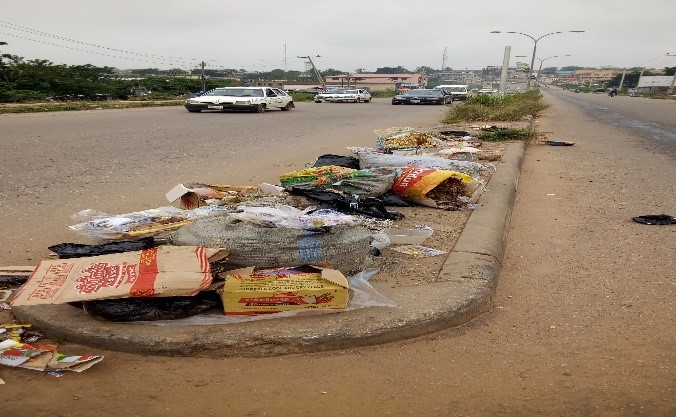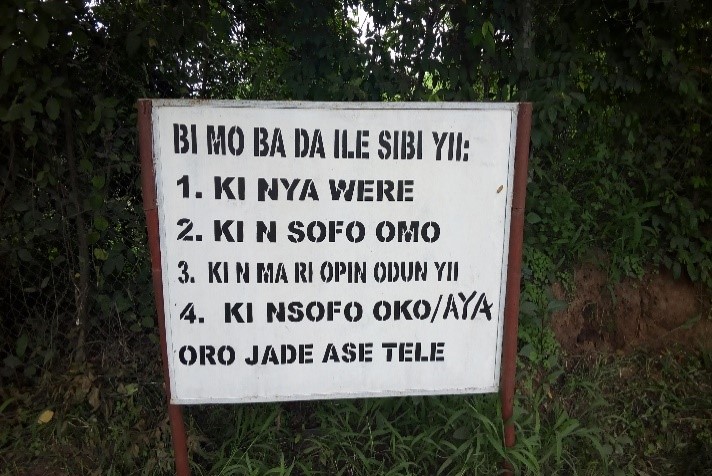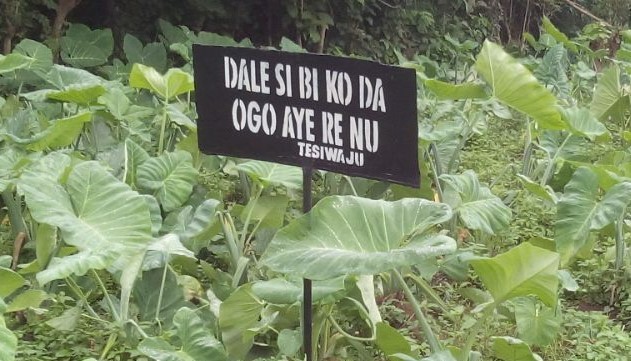Curbing indiscriminate waste disposal in Ibadan metropolis, Nigeria: An innovation that works magic

By Olushola Fadairo, CIRCLE Visiting Fellow hosted at ACDI
Arguably, climate change is one of the most critical challenges confronting our world today. Climate change as a phenomenon has grave consequences on lives and properties arising from draughts, flooding, shifts in rainfall, temperature and humidity.
Flooding, as an important climate change parameter, has anthropogenic exacerbating factors one of which is indiscriminate disposal of waste. Waste disposal could be described as indiscriminate when such materials are disposed of at locations that are unlawful and where it could result in or trigger environmental or health hazards to people and animals alike. For instance, refuse disposed in or around canals can hinder the free passage of rain water through such channels and hence cause the overflow of rain water beyond boundaries to damaging proportions. This is common whenever flooding occurs.
Many areas in Nigeria, and particularly Ibadan metropolis have in the recent times contended with this problem of flooding, which has often times inflicted untold hardships on the peopleâs lives and properties. Most local authorities in this region recognised the appreciable contribution of indiscriminate dumping of municipal solid waste (refuse) to this problem and have therefore embarked on aggressive campaign using the media and sometimes a task force to enforce compliance to acceptable standards with respect to safe disposal of waste in ways that are environmentally friendly. Some districts within the region have been in the news over the past few years on issues of environmental pollution.
Despite concerted efforts by the local authorities, my personal observations (see Figures 1 & 2) however reveal that indiscriminate refuse disposal within the metropolis has largely continued unabated. Therefore, the local environmental agency, seemingly left with no other choice, is now compelled to embark on routine evacuation of municipal wastes dumped deliberately at specific locations, especially refuse dumped along the major roads within the metropolis. There are indications however that this practise is unsustainable, therefore, the question of what else could be done to deter the growing culture of reckless dumping of refuse on the streets, along the roads, on farmlands, and in open spaces within the metropolis has become a serious concern.

Figure 1: An illegal refuse dump site along Jericho road, Ibadan

Figure 2: Sango-Eleyele road, Ibadan littered with refuse
In my thoughts and reflections on what can be done to arrest this ugly trend, I observed a strategy that appeared to have produced some good results in curbing a further spread of this problem within the metropolis (Figures 3 and 4). The location shown in figure 3 is a portion within an agricultural research institute in Ibadan which has been for some years unlawfully used by people as a refuse dumpsite. Several attempts made in previous years by the instituteâs management to resist attempts to turn this portion of its immediate environment to a refuse dumpsite such as restriction of vehicular movements along its transport corridors particularly by people within the neighbouring communities; and use of sign post with the conventional âgentle-man warningâ which reads âDumping of refuse here is prohibitedâ, have proved ineffective. However, since a concerned group adopted what I would describe as a traditional strategy shown in figure 3, I have observed that indiscriminate dumping of refuse/waste at the spot had ceased. It is important to note that this scenario is just one of the numerous cases of social disorder in Nigeria where similar measures have been proven effective in restoring the necessary order.

Figure 3: A public notice within the premise of an agricultural research institute in Ibadan with a warning message in a traditional form against illicit dumping of refuse by passersby.
Translation: âIf I dump refuse here: (1). I will run mad (2). I will lose my child (3). I will not live till the end of this year (4). I will lose my spouse. Sealed with the authority of the godsâ

Figure 4: A public notice on a farmland under the threat of indiscriminate refuse disposal with a warning to discourage further abuse of the space. Translation: âDump refuse here and jeopardise your destinyâ
While this innovation may appear crude, it is noteworthy to state that its effectiveness in compelling attitudinal change among the people is remarkable. In this vein, efforts to improve the innovation package and sustain the momentum generated in order to achieve the wider impact necessary to guarantee a safe environment for all is worth giving priority attention to in the metropolis.
Disclaimer: The views expressed here are solely those of the author in his private capacity.